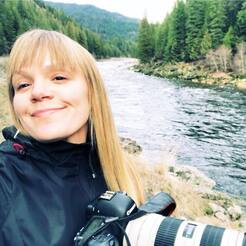|
PNWER at Work > Working Groups > Columbia River Treaty
|
|
About Resources
Leadership Contact Staff |
About
In new environments, with no natural predators, invasive species are able to grow and spread rapidly. Undetected, this growth can disrupt ecosystems and society. According to the World Conservation Union, invasive species are the second biggest threat to biodiversity. The estimated damage worldwide from invasive species is more than $1.4 trillion. The annual cost in the United States is estimated at $120 billion. A Canadian study, which examined just 16 invasive species, estimated annual costs at between $13.3 and $34.5 billion. PNWER ResourcesAction Items
Archive
Summer 2018 Action Items Proceedings Summer 2017 Annual Report 2017 Summer 2016 Annual Report 2016 Summer 2015 Action Items Annual Report 2015 Summer 2014 Annual Report 2014 Summer 2013 Annual Report 2013 Agenda
<
>
News
<
>
National, State & Provincial ResourcesUS & Canada National Environmental Leadership
National groups in the United States and Canada addressing the issue of invasive species
State & Provincial Environmental Leadership
State and Provincial organizations addressing invasive species
Non-Governmental Organizations Invasive Species Work
Non-Governmental Organizations addressing the issue of invasive species
Quagga and Zebra Mussels
<
>
PNWER work related to the prevention of quagga and zebra mussels in 2018. Federal budget allocates $5 million to Prevent Aquatic Invasive Mussels in Pacific Northwest March, 2018 The U.S. Congress allocated $5 million to fund watercraft inspection stations in Washington, Oregon, Idaho, and Montana, and an additional $1 million for controlling invasive flowering rush. This funding will be administered by the U.S. Army Corps of Engineers and require one-to-one funds matching from the states. Through this funding, the Pacific Northwest will prevent the spread of invasive quagga and zebra mussels which destroy native fish habitats and wreak havoc on aquatic ecosystems. Read the PNWER news release Presentation of Invasive Species Federal Funding made to Washington State Senate PNWER presentation to the Washington State Senate about the importance of federal funding to preventing the spread of aquatic invasive species, including quagga and zebra mussels. View the PowerPoint here PNWER work related to the prevention of quagga and zebra mussels in 2016. Senate Approves Water Resources Development Act September 15, 2016 The U.S. Senate approved the Water Resources Development Act (WRDA), authorizing $9 billion in spending on 25 water development projects across the nation. The bill authorizes up to $20 million to be administered by the U.S. Army Corps of Engineers to match state spending for watercraft inspection stations protecting the Columbia River Basin, including those in Washington, Oregon, Idaho and Montana, from aquatic invasive species. Read the PNWER News Release Western Canada Invasive Species Agreement signed June 6, 2016 The Western Canada Invasive Species Agreement has been signed by British Columbia, Alberta, Yukon, Saskatchewan and Manitoba. It is a coordinated regional defense against invasive species with an initial focus on aquatic invasive species. The agreement allows for a greater collaboration between regions in Western Canada by sharing resources and coordinating planning in the prevention and response to invasive species. As an example, jurisdictions will work together to co-ordinate watercraft inspection station locations near shared highway crossings and offer valuable resources to help in the event a rapid response is needed. Read the news release from the British Columbia Ministry of Environment Invasive Mussel Prevention Framework released April, 2016 PNWER co-sponsored the Mussel Prevention Leadership Forum, which took place December 8 in Vancouver, B.C., to produce the Invasive Mussel Prevention Framework for Western Canada. The meeting included representatives of British Columbia, Alberta, Saskatchewan, Manitoba, Washington and Oregon. The multi-year framework is designed to reflect shared goals and priorities and to facilitate a collaborative and coordinated approach to invasive mussel prevention across Western Canada. Key updates based on actions identified during the forum include:
Read the framework PNWER work related to the prevention of quagga and zebra mussels in 2015. $4 million for Pacific Northwest mussel defense secured Efforts within the Pacific Northwest to defend against invasive quagga and zebra mussels were given a major boost Friday, December 18, 2015 as congress appropriated $4 million within the federal omnibus budget for watercraft inspection stations in Washington, Oregon, Idaho and Montana. The federal funds, administered by the U.S. Army Corps of Engineers, will require a one-to-one funding match with the states. Read the press release Regional Framework for Perimeter Defense presented The Pacific NorthWest Economic Region's Invasive Species Working Group presented a Regional Framework for Perimeter Defense against Invasive zebra and quagga mussels July 13 at the PNWER Annual Summit at Big Sky Resort. The regional defense framework identifies ways states, provinces and federal border agents can help prevent the spread of mussels and estimates funding needs and possible sources to implement control measures. See the Framework Executive Summary Full Report Press Release Leadership |
Banner photo by Tristan Ferne
|
World Trade Center West
2200 Alaskan Way, Suite 460 Seattle, WA 98121 |
|


